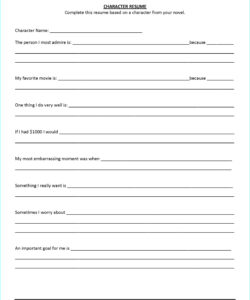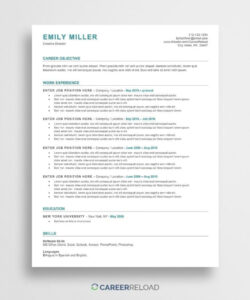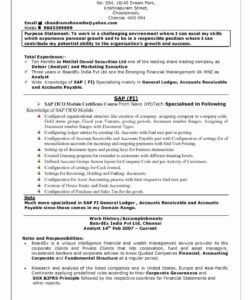When it comes to writing a resume, including your sports achievements can be a great way to stand out from the crowd. Not only do sports achievements demonstrate your dedication and hard work, but they also show that you have valuable skills that can be applied in the workplace. In this article, we’ll show you how to include sports achievements in your resume, with examples and tips to help you get started.
Why Include Sports Achievements in Your Resume?
There are several reasons why you should consider including your sports achievements in your resume. First and foremost, sports achievements demonstrate your ability to work hard and achieve your goals. This is an important quality that employers look for in candidates, as it shows that you have the drive and determination to succeed.
Secondly, sports achievements can help you stand out from other candidates. If you’re applying for a job in a competitive field, such as sales or marketing, having sports achievements on your resume can help you differentiate yourself from other applicants.
Finally, sports achievements can demonstrate that you have valuable skills that can be applied in the workplace. For example, if you were the captain of your college basketball team, this shows that you have leadership skills and the ability to work well in a team environment.
How to Include Sports Achievements in Your Resume
When including sports achievements in your resume, there are a few things to keep in mind. First, you should only include achievements that are relevant to the job you’re applying for. For example, if you’re applying for a job in sales, you might want to highlight your experience as a team captain or your ability to work well under pressure.
Secondly, you should be specific about your achievements. Instead of simply listing that you played on a sports team, provide details about your accomplishments. For example, you might say that you were the leading scorer on your high school basketball team or that you won a regional championship in track and field.
Finally, you should use action verbs to describe your achievements. Action verbs are powerful words that help to convey your accomplishments in a more impactful way. Some examples of action verbs you might use include “led,” “captained,” “won,” “achieved,” and “excelled.”
Examples of Sports Achievements to Include in Your Resume
Here are a few examples of sports achievements that you might include in your resume:
- Won the state championship in high school basketball
- Served as team captain for the college soccer team
- Set a school record in the 100-meter dash
- Received the MVP award for the regional softball tournament
Remember, when including sports achievements in your resume, it’s important to be specific and use action verbs to describe your accomplishments. By doing so, you’ll be able to demonstrate your skills and stand out from other candidates.
Conclusion
Including sports achievements in your resume can be a great way to demonstrate your skills and stand out from other candidates. By following the tips and examples outlined in this article, you’ll be able to create a resume that showcases your sports achievements and highlights your valuable skills.
FAQ
Q: How do I include sports achievements in my resume?
A: When including sports achievements in your resume, be sure to only include achievements that are relevant to the job you’re applying for. Be specific about your accomplishments and use action verbs to describe them.
Q: What are some examples of sports achievements to include in my resume?
A: Some examples of sports achievements you might include in your resume include winning a state championship, serving as team captain, setting a school record, or receiving an MVP award.
Q: How many sports achievements should I include in my resume?
A: You should only include sports achievements that are relevant to the job you’re applying for. Depending on the job, you might include one or two sports achievements, or you might choose not to include any at all.


